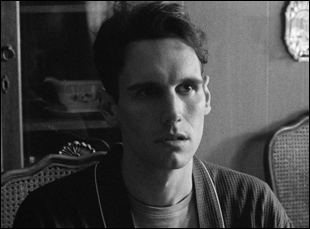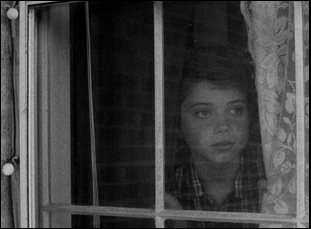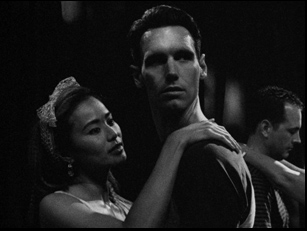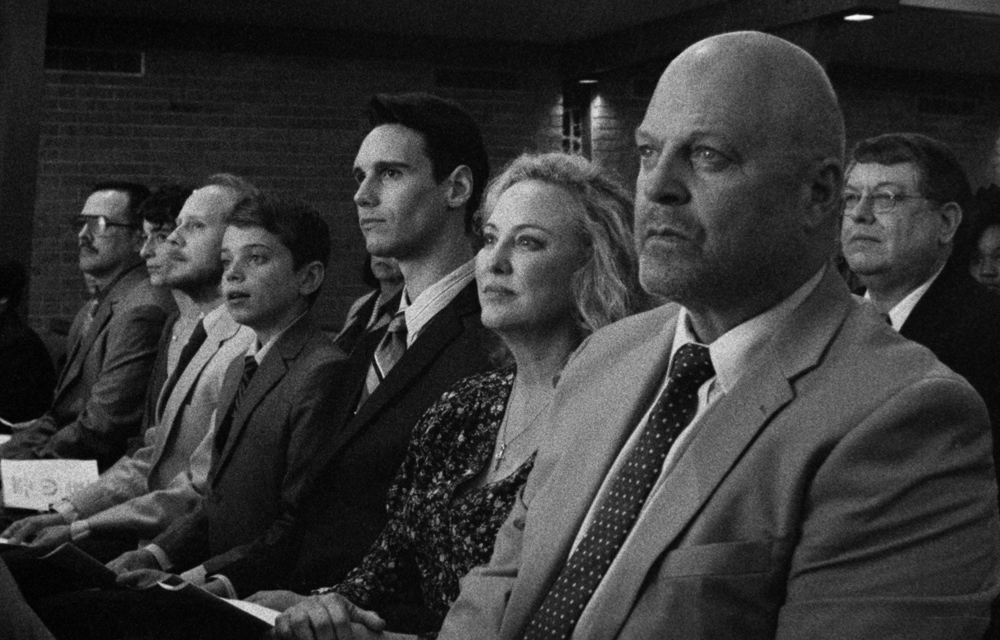It arouses suspicion in Yen Tan’s “1985” when Adrian (Cory Michael Smith) begins giving pricey gifts out to his family in the suburbs of Dallas at Christmas, with his parents Dale (Michael Chiklis) and Eileen (Virginia Madsen) guessing the new promotion he says he received at work could pay for a round trip to Honolulu or the $100 gift card to the Sound Warehouse for his younger brother Andrew (Aidan Langford). They largely lost track of his life when he fled for the big city years ago, but the way Adrian’s been carrying himself, they’re afraid to ask since he seems to have his guard up more than usual. A former high school classmate knows his name at the local supermarket, but he’s less recognizable to Carly (Jamie Chung), his best friend from those days who know he’s carrying something heavy, but unaware of just what.
Tan never allows the term “AIDS” to ever be uttered in “1985,” nor would it have been, so terrifying at the time it was usually talked around for different reasons amongst the gay community Adrian’s a part of God-fearing folks like his family, yet it’s as thick in the air as the grain in the black-and-white film the writer/director has made with every shade of grey thrown in. A precise, intimate portrait of a very particular time and place, “1985” ultimately says the world about what it was like to live with what was understood then to be a death sentence, observing Adrian trudge through the holidays during what should be the prime of his life, unsure whether to tell his family of his diagnosis, let alone his sexual orientation and revisiting his hometown with the knowledge that he’s there quite possibly for the last time.
Born out of the same instincts that led to his 2016 short of the same name, but a completely different story, “1985” proves to be deeply moving, both as a family drama and an evocation of an era that may seem distant but not all too far removed from today and with the film now arriving in theaters following a celebrated festival run that began earlier this year at SXSW, Tan was kind enough to answer a few questions via e-mail about the film’s conception, shooting around where he himself came of age and wringing out such big emotions from a film so spare in its style.

I didn’t intend to turn the short into a feature while making the short. It was only until the short was submitted to festivals that I thought about writing a feature version that still touched upon the familiar idea of homecoming but goes to unexpected places.
Did the geography of Dallas/Fort Worth help give a structure to the story you could tell?
Yes, I’ve lived in Texas more than two decades at this point, so telling something that’s set here always seems closer to heart for me. Many of the people I encountered at my earlier mid-90s job who were living with HIV/AIDS were also from Texas, and since I was telling their stories, the geography just felt more authentic.
At the film’s premiere, your cinematographer HuTcH had mentioned AIDS being seen as black-and-white at the time, which is something you could express visually but not verbally, and of course the term AIDS is never uttered – I may be making a connection where there isn’t one in asking this, but I wonder when you make that decision upfront to leave something like that unspoken, does it become something you’re more conscious of while making the film or less?
This is the privilege of making an AIDS drama today. We don’t have to talk about the things that we all know from history. We no longer need to “educate” the audience and neither AIDS nor the word “gay” is uttered through the film, but we’re comfortable in assuming that everyone knows the context and those words are already lingering in their mind.

We ended up cutting some key scenes and moments in the script, too, because their performances already conveyed so much that it was easy to strip it down in post. It’s so easy to overindulge on the melodramatic aspects of the film, so distance was required. Shooting the way we did, with longer takes, not cutting too quickly, and playing out scenes in masters whenever possible just made a lot more sense with the black and white aesthetic. Those choices also created a sense of subtlety and restraint that elevated the story. We also screened cuts throughout the process, to get notes and feedback, and that was very really helpful in getting the film to where it’s at.
What sold you on Cory Michael Smith as Adrian?
There was his haunting performance in “Olive Kitteridge”, which I was a huge fan of, and then when we first talked about the script, he just totally got the character in a really thoughtful way. We connected really quickly, and I just felt in my gut he was so right for this.
You’ve said there wasn’t time for rehearsal, but when a big family gathering for Christmas is day three of the shoot, did you actually set up the schedule in a way that might’ve been beneficial to making those connections between the cast?
We tried our best, but let’s face it, on our indie level, we couldn’t make a lot of things happen. What was helpful was that we had lunch or dinner before shooting their scenes, so there was a sense of camaraderie between the actors before they arrived on the set. It’s helpful that Cory, Michael [Chikilis] and Jamie [Chung] already knew each other from working on “Gotham,” and Virginia [Madsen] and Michael are friends, too, so there was a chemistry shorthand that worked to our advantage.

I wanted an Asian American character in this. There are many Asian communities in Texas, after all, so Carly specifically came from a place of wondering what it’d be like if someone like Margaret Cho was born and raised in Texas. She’d definitely be an outsider, just like Adrian, and it was a great way to show how they both don’t fit in, which is why they became lovers and friends.
What’s it been like putting this out into the world?
I’m still taken aback whenever I see highly emotional reactions. It’s not that I’m surprised, but when strangers lose their composures in front of you, it’s this weird sense of feeling bad for putting them through that but also grateful that they had that experience, because it is cathartic for them. I’m just thrilled that we managed to turn something that seemed so bleak on paper into a film that is hopeful and resonating with people in a meaningful way.
“1985” opens on October 26th in Los Angeles at the Laemmle Glendale and in New York at the Quad Cinema. A full schedule of cities and dates is here.




